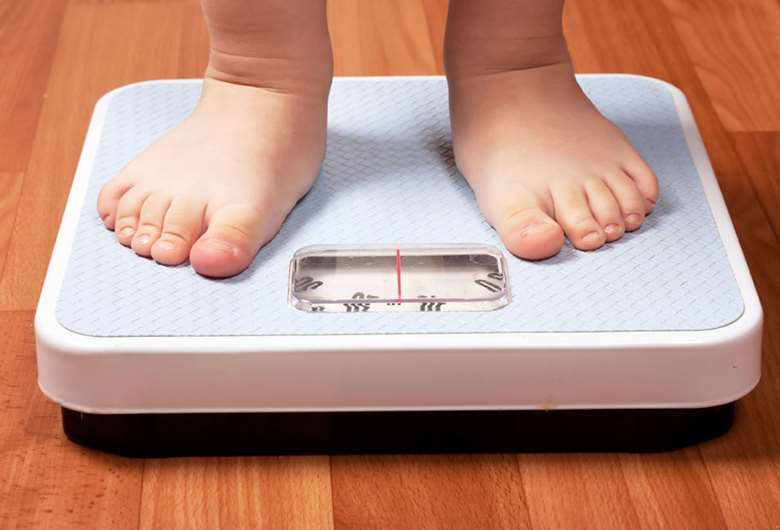22,000 children severely obese at the end of primary school
Wednesday, May 30, 2018
The number of children in the last year of primary school severely obese is almost double that of those in Reception, according to a new analysis by the Local Government Association.

The LGA said that this shows that children are gaining weight at a drastic level as they move through primary school.
The first data of its kind for 2016/17, which was given to the LGA by the National Child Measurement Programme, shows that:
- In Year 6 22,646 out of 556,452 10- and 11-year-old children (4.1 per cent) are classed as severely obese – the most overweight scale.
- In Reception 14,787 out of 629,359 children (2.35 per cent) of four-and five-year-olds are classed as severely obese.
The LGA said the figures were a ‘wake-up call’ for action to tackle the obesity crisis, which is costing the NHS £5 billion a year.
NCMP data shows one in five 10 and 11-year-olds are obese and one in 10 four and five-year-olds are obese. If those who are overweight are included, the rates rise to a third and a fifth respectively.
Severe obesity rates vary significantly by area and are highest in children living in the most deprived towns and cities, and those from BME groups, which the LGA says suggests a need for the development and evaluation of more targeted evaluations.
Childhood obesity has been described as one of the most serious public health challenges for the 21st century by the World Health Organisation. The UK is the most obese nation in Western Europe and the sixth most obese in the world, according to analysis by the Organisation for Economic Co-operation and Development.
For most adults, a BMI of 40 or above means a person is severely obese – at least 60 per cent higher than the upper healthy weight BMI limit of 24.9.
Severe obesity puts people at serious health risks, including diabetes, heart disease, stroke and cancer - obesity is the second biggest cause of cancer. It can also shorten a person’s life by 10 years – an equivalent loss to the effects of lifelong smoking.
Despite budget cuts, councils are spending more on running effective prevention schemes to help children stay healthy, which is key to tackling the child obesity crisis and reducing future costs to hospital, health and social care services.
Since the responsibility of delivering public health transferred to councils in 2013, local authorities have spent more than £1 billion tackling child and adult obesity, and physical inactivity.
Councils report a 50 per cent increase in spend between 2013/14 and 2016/17 on childhood obesity, and a 60 per cent increase for childhood physical inactivity in the same period.
However, the LGA said that this prevention work, including the ability of councils to provide weight management services for children and adults, is being hampered by a £600 million reduction in councils’ public health budgets by central Government between 2015/16 and 2019/20.
It is calling for the cuts to public health grants to be reversed by the Government and for further reforms to tackle childhood obesity. This includes councils having a say in how and where the soft drinks levy is spent, better labelling on food and drink products, and for councils to be given powers to ban junk food advertising near schools.
Councillor Izzi Seccombe, chairman of the LGA’s Community Wellbeing Board, said, ‘These new figures on severely obese children, who are in the most critical overweight category, are a further worrying wake-up call for urgent joined-up action.
‘The UK is already the most obese nation in western Europe, with one in three 10 and 11-year-olds and one in five four and five-year-olds classed as overweight or obese, respectively.
‘Unless we tackle this obesity crisis, today’s obese children will become tomorrow’s obese adults whose years of healthy life will be shortened by a whole host of health problems including diabetes, cancer and heart disease.
‘Cuts to councils’ public health grants by government are having a significant impact on the many prevention and early intervention services carried out by councils to combat child obesity. This short-sighted approach risks causing NHS costs to snowball due to the ill health consequences of obesity in our younger generation.
‘Following the introduction of the sugar tax, we urge government to publish more details of its obesity strategy and to recognise councils’ key prevention role in tackling one of the greatest public health challenges this nation faces.’
A Department of Health and Social Care spokesman said, 'Our childhood obesity plan is among the most comprehensive in the world —our sugar tax is funding school sports programmes and nutritious breakfasts for the poorest children, and we’re investing in further research into the links between obesity and inequality.
‘However, we have always been very clear that this is the not the final word on obesity, and we have not ruled out further action if the right results are not seen.’




